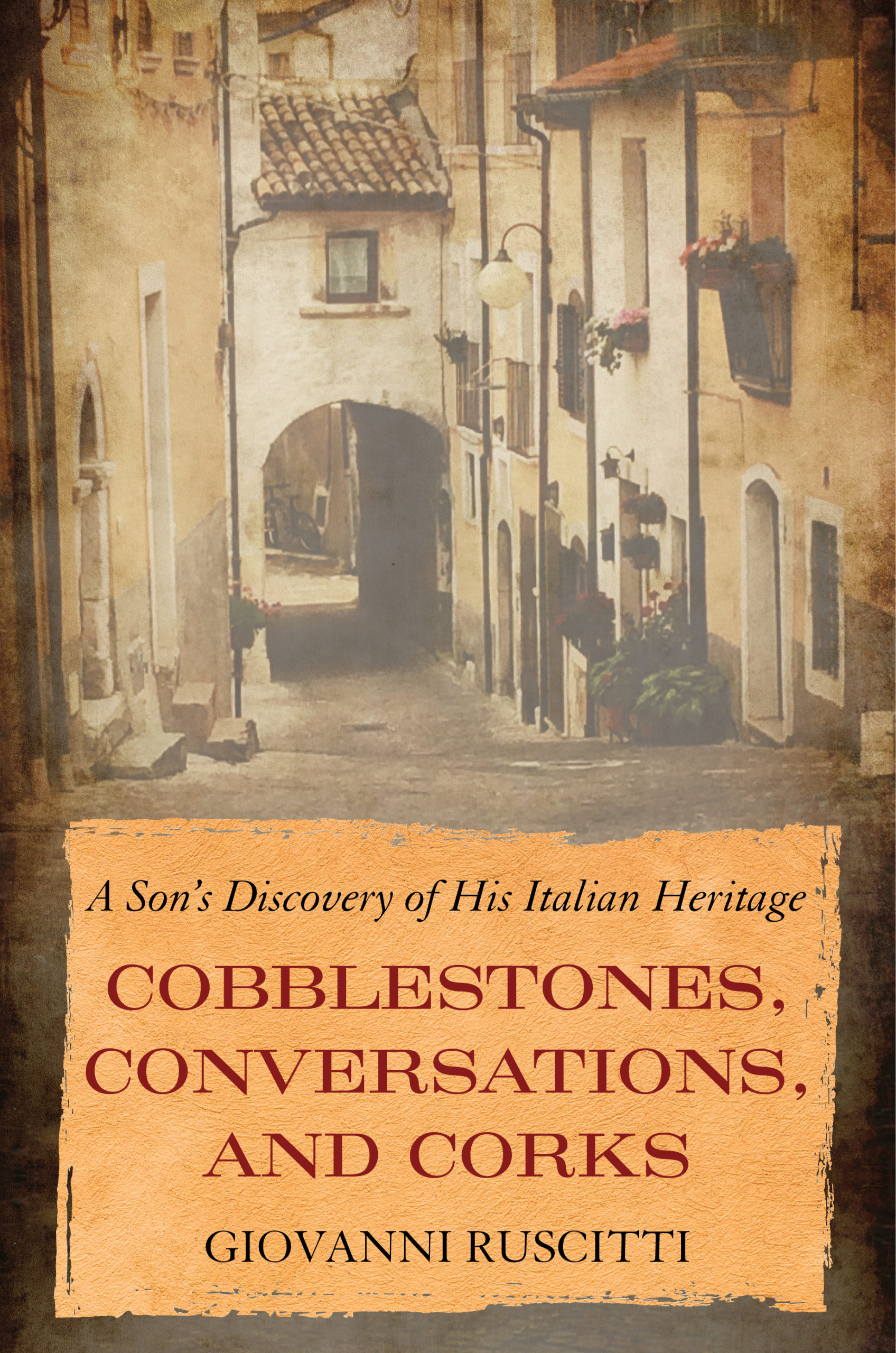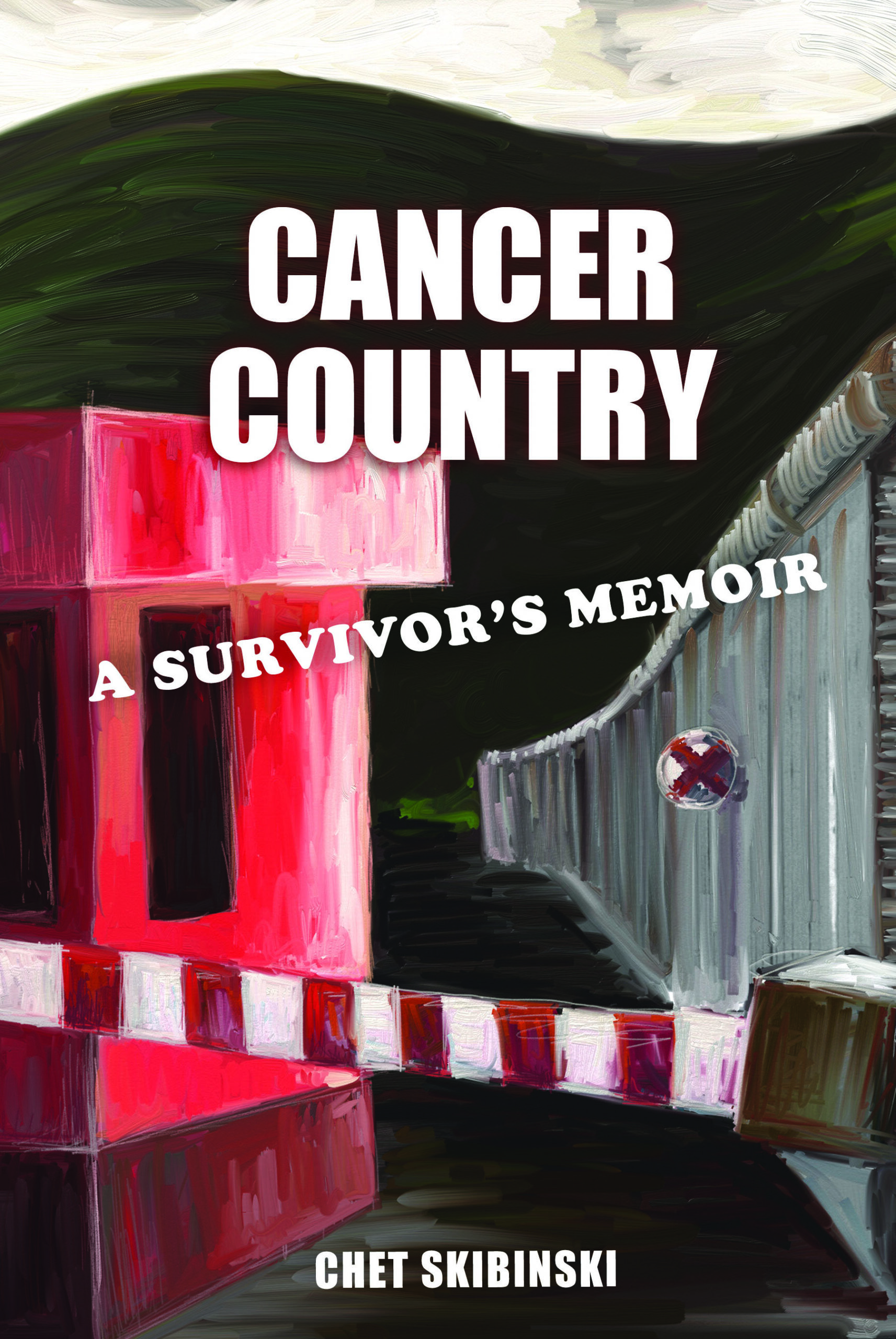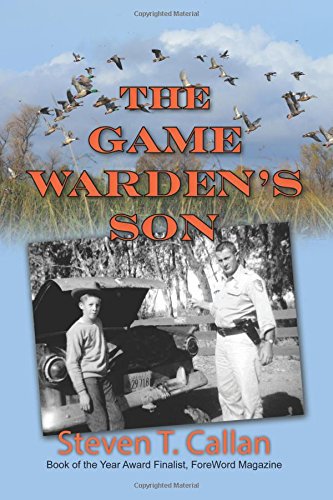Cobblestones, Conversations, and Corks: A Son’s Discovery of His Italian Heritage
Thomas Wolfe’s famous adage states that you can never go home again; however, in Cobblestones, Conversations, and Corks, Giovanni Ruscitti demonstrates otherwise. Ruscitti is a first-generation Italian American and nationally recognized attorney, arbitrator, and mediator who has put aside his legal briefs to produce an engaging, delightful, and sometimes melancholy memoir of his search for his Italian roots. The book is multifaceted, at times a biography of his father, a history of a small town in central Italy, and an examination of the Italian immigrant experience during the post-war era. It is also an examination of Italian village culture in the Abruzzo region of Italy, and it is useful as a departure point for a traveler desiring an off-the-beaten-track experience in Italy.
The narrative starts with Ruscitti’s 2016 trip to his parents’ hometown of Cansano, Italy. It is on this trip that he learns about his parents’ Italian roots, meets his Italian relatives, and comes face to face with his family’s past. Ruscitti, as a son of Italian immigrants living in a close-knit Italian American community, grew up in world formed by Italian customs, but he never explored, as he writes, the “fabric out of which my parents’ lives were woven, as well as the colorful threads out of which they spun the tapestry of our lives.” The four-day trip is the center of the narrative, and the author presents the formative experiences of his life and how his relationship with his father grew and changed over the years. This intimate memoir unfolds as Ruscitti reveals his father’s life experiences in America and Italy.
Cobblestones, Conversations, and Corks is apropos as a title, as Ruscitti treads the cobblestone streets of his father’s past and engages in lengthy conversations with relatives while the Italian red wine flows. One of the saddest subjects is the recitation of the village of Cansano’s experience in World War II. Cansano had the misfortune to be part of the Gustav Line, which was a Nazi defensive position in central Italy anchored by the famous Monte Cassino monastery. Cansano’s population underwent devastating deprivations during the war and it never fully recovered as a village.
The book is a slim volume of forty-one chapters packed into a little over two hundred pages. At times, the thread of the narrative gets sidetracked by excessive flashbacks as the reader is continually sent back in time, only to be thrust forward again a few pages later. A more moderate use of flashbacks would have improved the flow. However, this is a minor distraction in an otherwise excellent book. At the end of the day, Ruscitti proves that not only can you go home again, you can also go home for the first time.
| Author | Giovanni Ruscitti |
|---|---|
| Star Count | /5 |
| Format | Trade |
| Page Count | 224 pages |
| Publisher | Radius Book Group |
| Publish Date | 16-Aug-2022 |
| ISBN | 978163576796 |
| Bookshop.org | Buy this Book |
| Issue | July 2022 |
| Category | Biographies & Memoirs |
| Share |





